
INVESTMENTRESPONSIBLEPOLICY
2022
Introduction 3
Wiltshire Pension Fund as an investor 4
Investment beliefs 5
ESG Integration 6
Strategic Asset Allocation (SAA) 6
Monitoring managers 7
Non-Financial ESG Considerations 7
Climate Change 10
Engagement Policy 15 Wider Initiatives 17
Resourcing 18
Knowledge and Training 19
Reporting and Accountability 20
Stewardship 21
Scheme membership and employer engagement 22
Glossary 23
2 WILTSHIRE PENSION FUND RESPONSIBLE INVESTMENT POLICY 2022
INTRODUCTION
Responsible investment is the strategy to incorporate ESG (environmental, social and governance) factors into investment decisions. The Wiltshire Pension Fund’s position regarding ESG issues is as follows:
The Pension Fund Committee believes that in order to carry out their fiduciary duty by acting in the interest of scheme members, that effective management of Environmental, Social & Corporate Governance management (ESG) issues, including climate change, which are financially material to the Fund is essential. In order to protect the Fund’s investments into the future, the Fund supports a global warming scenario of 2°C or lower, and states an ambition to achieve net-zero carbon emissions across all investment portfolios by 2050.
ESG risks should be taken into account on an ongoing basis and are an integral part of the Fund’s strategy and objective of being a long-term investor.

The Pension Fund’s investment objectives are to achieve sufficient investment returns such that there are funds available to pay the pensions as they fall due, and to meet the liabilities over the long term whilst maintaining stable employer contribution
Therefore,rates.
consideration of all factors (including ESG factors) which could affect the investment returns is a fundamental part of managing the investments and helping to mitigate the risk for employers that contribution rates need to be increased. Responsible investment practices can both help mitigate risks and also enhance returns.
The Fund has made significant progress in developing the approach to responsible investment, and has set a goal to be an example of best practice in this area. The Committee approves
a Responsible Investment Plan each year, assessing progress made so far and setting out goals for the year ahead. There are also several actions addressing responsible investment in the Fund’s Business Plan. Fund’s first dedicated Responsible Investment Policy was approved by the Committee in September 2021. The Responsible Investment Policy is reviewed annually, and is intended to bring all the information on the Fund’s responsible investment activities into one place, to promote transparency and engagement with stakeholders. The Responsible Investment Policy also specifically addresses the high-priority risk of climate change, how this is being managed, and the targets and metrics which the Fund reports against.
Examples of actions and developments over the last year are as
•follows:Collaborating with other shareholder funds and the Brunel pool to develop a Paris-aligned benchmark, and investing £600m in a passive portfolio tracking this benchmark at its launch in November 2021
• Making allocations (5% of the fund each) to UK impact affordable housing and renewable infrastructure
• Conducting a survey of employers on strategic issues, including responsible investment concerns
• Submitting a first report in line with the requirements of the Stewardship Code 2020, and obtaining signatory status
• Publishing a mini magazine for stakeholders on our responsible investment and stewardship highlights
• Winning the 2021 LAPF Investment award for “Best Approach to Responsible Investment”
• And more.
WILTSHIRE PENSION FUND RESPONSIBLE INVESTMENT POLICY 2022 3
WILTSHIRE PENSION FUND AS AN INVESTOR
As the Fund is open to new members, who will not be retiring for many years into the future, the Fund has a very long-term investment horizon. The Fund therefore needs to consider long-term sustainability issues, and the importance of engagement with companies in which it is invested, in order to safeguard the investments into the future.
The Fund is a large, diversified investor, with exposure to the global economy. The Fund therefore needs to invest in a way that contributes to the success of the global economy and society as a whole, as this will have a positive financial impact on the Fund’s investments.
1 Stable and contributionsaffordable
11 Responsible ownership and stewardship
The vision is set to focus the team on delivering outcomes for the employers and members of the pension fund. The vision is supported by 16 outcomes-focussed strategic vision goals. The goals broadly map to outcomes for employers, members, investments, and governance, however, across the team staff are encouraged to think about how their work maps to different
Thegoals.
strategic goal 11, “Responsible Ownership and Stewardship”, is particularly relevant to responsible investment activities. The goal focusses on ensuring that our responsible investment and stewardship activities are in line with best practice (which also contributes to strategic goal 16, “Compliance and Best Practice”), and that these activities are a central part of delivering an outstanding service to our scheme employers and members.
15 Transparency and information sharing Compliance and best practice
For these different groups this may mean different things:
– Employers will be best served by the delivery of long-term positive investment returns, which will help keep their contribution rates affordable (strategic goal 1, “Stable and Affordable Contributions”, is targeting this outcome), and responsible investment activities can help preserve capital and enhance value.
– Members may be concerned about how the funds held to pay their pensions are invested, and goal 15, “Transparency and Information Sharing” contributes to this outcome. Responsible investment has a role to play here in the information that is shared with members – for example, the Fund publishes its engagement and voting records online, as well as sharing investment case studies. The Fund also works to make information more accessible to a wider stakeholder group, through the use of one-page factsheets, mini-magazines, and engaging news stories.
OUR CULTURE
In order to help us achieve our strategic goals, and deliver our vision, we need to adopt certain outlooks and ways of working. This is set out in our values, which form part of our culture. The value most relevant to responsible investment and stewardship is "Long Term Thinking", which runs through everything we do.
As a long-term investor, we are able to participate in stewardship activities which can add value to the Fund's investments over the long term.
The complete set of our strategic goals and values are set out on our website: https://www.wiltshirepensionfund.org.uk/Our-vision-goals-and-values
LONG TERM THINKING
We always act with the long term in mind, whether we are setting our investment strategy, planning improvements, or working towards our net zero by 2050 goal
Our vision is to deliver an outstanding service to our scheme employers and members
4 WILTSHIRE PENSION FUND RESPONSIBLE INVESTMENT POLICY 2022
16
INVESTMENT BELIEFS
The following investment beliefs set by the Fund relate to responsible investment issues:
Investment belief
The strategic asset allocation is the key factor in determining the risk and return profile of the Fund’s investments
Investing over the long term provides opportunities to improve returns
RI implication
The Fund has embedded ESG issues and sustainability within the strategic asset allocation, and has set specific strategic allocations to Paris-aligned passive equities, sustainable active global equities, renewable infrastructure and impact affordable housing, in order to manage risk and secure returns into the future.
Investing over the long term means that the Fund can take advantage of opportunities in long-term sustainability trends and/or growth style portfolios, as well as benefit from engagement activities with companies in which the Fund is invested.
Environmental, Social and Governance factors, including Climate Change are important factors for the sustainability of investment returns over the long term
In order to protect the Fund’s investments into the future, the Fund supports a global warming scenario of well below 2°C, and states an ambition to achieve net-zero carbon emissions across all investment portfolios by 2050
We seek to invest in a way that, where possible, aligns the interests of the Fund with those of the contributing employers and the Fund membership
The Fund’s status as a long-term investor means that the Fund needs to consider the risks and opportunities presented by wider issues such as climate change and the potential impact on the investments. This can help the Fund avoid the risk of being exposed to stranded assets, and help ensure that the Fund can benefit from exposure to companies which are well prepared for transition to a low carbon economy.
The Fund acknowledges that climate change is a material systemic risk which could have significant adverse impacts on the investment portfolio if not managed correctly. The Fund is actively working to mitigate this risk, and the Committee has reviewed scenario modelling and undertaken training, and the Fund is an early adopter of the TCFD reporting recommendations, which disclose how the Fund manages climate change risk.
This policy contains an employer and member engagement plan, and is actively advancing the approach in this area. Member and employer views formed part of the decision-making process when setting the net zero target.
A recent survey of employers showed that in the majority of responses, employers believe that it is important that the Fund’s investment strategy should, where possible, try to reflect the wider goals and philosophy of the employer organisations. A recent survey of the Fund’s membership showed that from the 2,251 responses, 86% of members answered “Yes” or “Maybe” to the question “Is it important to you that the Fund invests in low carbon and/or sustainable assets?”
Investing with a positive social and environmental impact is an increasingly important issue for investors, and can be achieved alongside competitive market returns. Investing with impact can also help incorporate risk and return drivers which would otherwise not be considered. The Fund wishes to invest in a way that minimises negative impacts on society and the environment and, where possible, makes a positive contribution
Stewardship and engagement are generally more effective tools than divestment in encouraging changes that will help safeguard the Fund’s investments. The Fund values the benefits of working with other investors to strengthen these activities and achieve better outcomes.
Impact investing is a rapidly growing area and the Fund has recently made a dedicated strategic allocation to Impact Affordable Housing, as part of the protection assets allocation. As part of the full review of the strategic asset allocation in 2022, the Fund will consider options for investing with impact in other areas of the strategy.
In April 2022, the Fund published its first report in line with the requirements of the 2020 Stewardship Code, and became a signatory of the Code in late 2022. We published a mini-magazine on our Responsible Investment and Stewardship Highlights for 2021/22, designed to make this information accessible to our stakeholders. During 2021/22, we strengthened our approach to working with other investors, by joining some new initiatives and fully engaging with them.
WILTSHIRE PENSION FUND RESPONSIBLE INVESTMENT POLICY 2022 5
ESG INTEGRATION
In order to ensure that all relevant risks (including climate change risk) are considered and acted upon, the Fund needs to integrate responsible investment issues across the whole investment process:

i. Investment Strategy Statement (ISS)
This Responsible Investment Policy is appended to the ISS and is an integral part of it
ii. Strategic Asset Allocation (SAA)
The Fund will incorporate ESG issues in the design of the SAA, for example via specific allocations to Paris-aligned passive equities, sustainable active equities, renewable infrastructure, and impact affordable housing, and in the selection of investment managers
iii. Monitoring of managers and the pooling company
Managers will be held account for their responsible investment activities, and the Fund will work with the Brunel pool to develop the responsible investment approach
iv. Stewardship and engagement
The Fund has now delivered the first report in line with the 2020 Stewardship Code, which will be published annually. This year more detailed consideration has been given to a Fund engagement strategy, which is included in this policy.
v. Internal reporting and accountability
the Committee receive quarterly reporting on responsible investment issues, and staff have performance goals set which cover responsible investment activities and developments
vi. Reporting externally
The Fund’s main external reporting is via the Annual Report, which includes information on major responsible investment updates, and TCFD reporting. The Fund also communicates responsible investment updates via the website, including publishing voting and engagement records
vii. Stakeholder engagement
The Fund has a strategy for engagement with the scheme membership and employers
These points are all dealt with in more detail within the appropriate section of this policy.
STRATEGIC ASSET ALLOCATION (SAA)
Following on from climate change scenario modelling which was carried out in late 2020, the Committee has made changes to the SAA, reflecting the results of the modelling, in order to ensure the best possible financial returns for the Fund’s investments, and to mitigate risks. The Fund will continue to work to review all asset classes to ensure that climate risk and sustainability are being fully considered.
The SAA contains specific allocations to Paris-aligned passive equities, and sustainable active equities. A recent review of the protection assets has resulted in a decision to make specific allocations to renewable infrastructure, and impact affordable housing. The allocation to impact affordable housing was made as this asset class provided the desired risk/return drivers, with the additional benefit that it will generate a measurable positive social impact, and also provides the possibility for local investments (once all risk and return objectives have been
Thesatisfied).Fundhas
collaborated with the Brunel pool and the other client Funds who are part of the Brunel pool in developing a Paris-aligned passive benchmark, which will help enable the Fund to deliver the net zero by 2050 objective.
During late 2022, the Fund is carrying out a full review of the SAA, alongside the 2022 triennial actuarial valuation. This review will consider and embed sustainability and climate issues in delivering the revised
6 WILTSHIRE PENSION FUND RESPONSIBLE INVESTMENT POLICY 2022
SAA.5%
Long-Term Strategic Asset Allocation
Active global equities
Sustainable active global equities
Paris-aligned passive equities
Emerging market equities
Private
Secured income – operational renewables
Affordable housing
The total amount currently allocated to sustainable/low carbon assets over the long term is 25.2% of the Fund – sustainable active global equities (5%), Paris-aligned passive equities (12%), renewable infrastructure (5%), and secured income – operational renewables (3.2%).
MONITORING MANAGERS
The majority of the Fund’s assets are now held through the Brunel Pension Partnership (“Brunel”). Through Brunel, the Fund is able to work with the other 9 shareholder client funds to help develop responsible investment policy. Responsible investment is written into the portfolio specifications, and is a key topic of discussion at the client group. Reporting on responsible investment issues has been developed to support client requirements.
For all legacy managers, responsible investment is a standing item on the agenda for all quarterly monitoring meetings.
The Fund has a fiduciary duty to act in the best interest of its members and therefore expects its investment managers to take account of financially material social, environmental and ethical considerations in the selection, retention and realisation of investments as an integral part of the normal investment research and analysis process. The Fund believes that taking account of such considerations forms part of the investment managers’ normal fiduciary duty.
As such, the Fund has a commitment to ensuring that the bodies in which it invests adopt a responsible attitude toward the environment, and adopt high ethical standards. Such companies are expected to behave in a socially responsible manner by taking account of the interests of all stakeholders.
NON-FINANCIAL ESG CONSIDERATIONS
The pursuit of a financial return is the predominant concern for the Fund to address the funding obligations and minimise the on-going cost of pension provision to its 180+ employer organisations. The Fund is aware it may also take purely nonfinancial considerations into account provided that doing so would not involve significant risk of financial detriment to the scheme and where they have good reason to think stakeholders would support the decision.
The Pension Fund Committee has two employer representatives and two member observers, while the Local Pension Board has three employer body and three member representatives who both represent and can engage with beneficiaries and stakeholders to ensure the Fund is aware and can respond effectively to all stakeholders’ concerns.
When formulating and developing any policy on non-financial social, environmental, and corporate governance factors, the Committee will take proper advice from either its investment consultant or other appropriate expertise in this area and ensure the Local Pension Board and other stakeholder views are considered through the use of specific Board reports and consultations.
WILTSHIRE PENSION FUND RESPONSIBLE INVESTMENT POLICY 2022 7
SecuredIndexPrivatePropertyEmergingMulti-assetRenewableInfrastructureequityinfrastructurecreditmarketdebtdebtlinkedgiltsincome–long-lease property
5.0% 5.0% 8.0%12.0%5.0%7.5% 5.0%5.0% 5.0% 7.5%15.0%7.0%4.8% 3.2% 5.0%
25.2% allocated lowsustainable/tocarbonassets
Impact Investment
Impact investments are investments made with the intention to generate positive, measurable social and environmental impact alongside a financial return (as defined by the Global Impact Investing Network).
The Government considers that social investments are appropriate for LGPS funds where the social impact is simply in addition to the financial return. For example, the Fund has made a strategic allocation to Impact Affordable Housing, where the return characteristics are a match for the requirements, and in addition the anticipated positive social impact is an integral part of the investment case. The Fund will therefore receive and monitor social impact metrics as well as financial performance.
The Government also considers that investments where some part of the financial return is forgone in order to generate the social impact are also appropriate, where the administering authority has good reason to think scheme members share the concern for social impact, and there is no risk of significant financial detriment to the Fund.
The Fund is consistent in the application of risk and returns requirements when evaluating all investment opportunities, including those that address societal challenges. The Fund would invest in opportunities that address societal challenges
but generate competitive financial returns. Seeking such opportunities is generally delegated to our external fund
Lookingmanagers.at
the impact of the Fund’s investments can be very helpful in identifying new investment opportunities, and helps to identify ways that the Fund can reduce exposure to risks.
The following investment belief addresses the concept of impact investing:
Investing with a positive social and environmental impact is an increasingly important issue for investors, and can be achieved alongside competitive market returns. Investing with impact can also help incorporate risk and return drivers which would otherwise not be considered. The Fund wishes to invest in a way that minimises negative impacts on society and the environment and, where possible, makes a positive contribution

8 WILTSHIRE PENSION FUND RESPONSIBLE INVESTMENT POLICY 2022
The Committee has considered the United Nations Sustainable Development Goals (UN SDGs) through an investment lens. Although the SDGs are targeting broad economic goals and have not been specifically developed as an investment framework, as a large and diversified investor the Fund has exposure to the global economy, and the intended outcomes of the SDGs would benefit the Fund’s investments and the sustainability of investment returns into the future. The exercise of considering the SDGs also assisted the Fund in focussing on relevant investment risks and opportunities. As a result of this analysis, the Fund sees the strongest investment case for supporting the following SDGs, and will prioritise these areas when discussing engagement activity, investment opportunities and risk mitigation with investment managers:
• Climate [SDGs 13 Climate Action & 7 Affordable and Clean Energy]
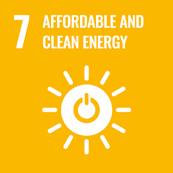
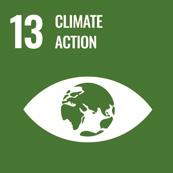

• Economic growth [SDGs 8 Decent Work and Economic Growth & 9 Industry Innovation and Infrastructure]
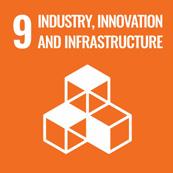
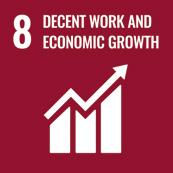
• Education [SDG 4 Quality Education]
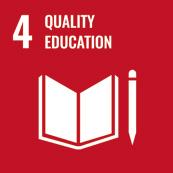
Sanctions
The Fund does not exclude investments in order to pursue boycotts, divestment and sanctions against foreign nations and UK defence industries, other than where formal legal sanctions, embargoes and restrictions have been put in place by the Government.
The view from Cley Hill
WILTSHIRE PENSION FUND RESPONSIBLE INVESTMENT POLICY 2022 9
CLIMATE CHANGE
Position and investment beliefs
Wiltshire Pension Fund acknowledges that climate change represents a major financial risk to the investments, and that as part of the Committee’s fiduciary duty, action needs to be taken to properly manage this risk, in order to safeguard the investments but also to be positioned to take advantage of the investment opportunities presented by a transition to a low carbon economy.
When it comes to climate risk, the Fund’s goal is as follows: To protect the investments from climate change risk, and safeguard the financial future of the Fund
The following investment beliefs directly address the risk of climate change:
Climate change risk is included in the Fund’s risk register as a “High” priority risk (“Medium” residual risk after the controls in place to manage the risk are considered).
Operational considerations
The Pension Fund team is part of Wiltshire Council, which has set its own target of net zero by 2030, and as such the team will also be working to achieve this target for its own operations.

Scenario modelling
In order to properly assess the potential financial implications of the risk, and to help identify ways to mitigate the risks and take advantage of opportunities, the Committee commissioned scenario modelling from both Mercer, the Fund’s investment consultants, and Hymans, the Fund’s actuary. The modelling results supported setting a net zero target, and also indicated that there were opportunities to provide a material financial benefit to the Fund by making dedicated allocations to sustainable equities and renewable infrastructure, both of which have now been approved. The modelling will be repeated at regular intervals, and at least once every 3 years, to monitor the dynamic situation.
Setting a baseline
The Fund has monitored the exposure to fossil fuel companies and renewable energy since 2010, and will continue to do so. This is a broad sectoral measure which does not consider the revenue split or the emissions of the individual companies.
An initial baseline, against which decarbonisation progress will be measured, was calculated using data as at 31 December 2020 (as referenced in our Responsible Investment Policy 2021), and this has now been backdated to 31 December 2019, in line with the Institutional Investors Group on Climate Change (IIGCC). Setting the baseline at 31 December 2019 will mean improved comparability with other investors. Work is being done to expand metrics across other asset classes.
“Environmental, Social and Governance factors, including Climate Change are important factors for the sustainability of investment returns over the long term”
“In order to protect the Fund’s investments into the future, the Fund supports a global warming scenario of well below 2°C, and states an ambition to achieve net-zero carbon emissions across all investment portfolios by 2050”
10 WILTSHIRE PENSION FUND RESPONSIBLE INVESTMENT POLICY 2022
The Fund’s
Implementingbaselineatransition plan
The Fund has engaged Mercer to provide support in setting a pathway to net zero by 2050, using Mercer’s proprietary Analytics for Climate Transition (ACT) analysis. The results of this work have led to the following specific carbon reduction targets, compared to a baseline position of 31 December 2019. The Fund has adopted targets based on a decarbonisation curve which front-ends carbon reductions, as this allows plenty of early work to be done to identify easy wins, and increases the chances of meeting a warming scenario of 2°C or lower. The decarbonisation curve is illustrated below: that emissions for Magellan are monitored, and the Fund actively engages with the manager to understand the position of the underlying companies, but the long-term nature of target setting supports the rationale for excluding this portfolio from the baseline.
Weighted Average Carbon Intensity (tCO2e/$m sales – measures the carbon intensity of the companies held in the portfolio): 96.6 TCO2E/ $M SALES WILTSHIRE PENSION FUND RESPONSIBLE INVESTMENT POLICY 2022 11
100%90%80%70%60%50%40%30%20%10%0% 2020 2025 2030 2035 2040 2045 2050 European CurveTransitionCurveDecarbonisationPolicy2020–2050Leaders2020–2050(%)Baseline2019DecemberEmissions, Calculation Date: 31 DECEMBER2019 What has included?been SCOPE 1 AND 2 EMISSIONS OF ALL EQUITY INVESTMENTS excluding Magellan as this is an interim portfolio* (36% of the total Fund) Carbon (tCO2e/$mfootprintinvestment–measurestheemissionsimpactofaportfolioper$1minvested): 39.9 TCO2E/ $M INVESTMENT *Note
Climate risk monitoring and reporting

The Fund uses the carbon footprint metric to measure progress against the targets. This is the preferred metric due to the link to real world absolute emissions, also providing better comparability with other investors, as this is very likely to be the standard metric set out in upcoming legislation for LGPS funds.
The Fund has adopted the recommendations of the Task Force on Climate-related Financial Disclosures (TCFD), since 2021, and includes this information in a separate report and as part of the annual report. This reporting sets out how the Fund manages climate change risk, from the perspective of governance, strategy, risk management and carbon metrics.
Progress against the targets is reported to the Committee on an annual basis from September 2022, and also included in an annual Climate Report (including TCFD reporting, but also information on decarbonisation progress, the status of all the Fund’s portfolios with regard to climate risk, investment case studies, examples of engagement work, key facts and other information) for the wider stakeholder group, from Spring 2023 onwards. As part of the overall transition plan, the Fund has carried out significant work towards setting a more detailed, bottom-up implementation plan. This bottom-up plan includes analysis of the transition alignment of the portfolio, as well as identification of individual stocks for prioritisation of engagement activities. The Fund also performs its own analysis of holdings for engagement prioritisation, covered elsewhere in this policy.
12 WILTSHIRE PENSION FUND RESPONSIBLE INVESTMENT POLICY 2022 The Fund’s Climate Commitments We commit to a targetreductionFundwholecarbonof 50% by 2030 1 We commit to a ofreductionequitieslistedcarbontarget 43% by 2025 and 69% by 2030 2 We commit to allocating 30% of the Fund to sustainable/ low carbon green assets by 2025, and 35% by 2030 (as measured by the long-term strategic asset allocation). 3 We will metricsandtargetspecificexpandnetzerosettingmonitoringoffor other asset classes over 2022, starting with property infrastructure.and 4 We commit to expanding target setting to cover climate stewardshipalignmenttransitionsolutions,and during 2023. 5
Other Asset Classes
The Fund has made significant progress towards defining how to set specific net zero targets for other asset classes (i.e. not listed equities), and this is still an ongoing piece of work. Considerations across other asset classes are set out as follows:
Asset Class
Private equity
Considerations
Data coverage and reporting is limited. Brunel assess managers’ ESG credentials at the time of commitment. Currently very little is available here to make setting and monitoring net zero targets a possibility. The Fund will work with Brunel to develop this area.
Infrastructure It is hoped that over time, the Fund will be able to obtain more reporting around exposure to “green” revenues, emissions reduced and avoided, new renewables made operational etc, and can then set targets around these metrics.
Renewable infrastructure
Multi-asset credit
Emerging market debt
(includingProperty long lease property)
Private debt
Index linked gilts
Secured income –operational renewables
Impact affordable housing
When this portfolio is implemented, environmental impact reporting will be required in order to monitor metrics such as those defined above under infrastructure.
Data coverage is challenging. Brunel are working with the investment managers for this portfolio to improve coverage, reporting, target setting etc.
Emerging market debt is part of the Fund’s emerging market multi-asset portfolio, held with Ninety One, one of the Fund’s legacy managers. The Fund is actively collaborating with Ninety One to advance the climate credentials of this portfolio, including climate targets, reporting, and investing in transition opportunities.
Data coverage and standardised reporting are challenges. The Fund monitors which underlying property funds have set net zero targets, and the portfolios GRESB score (Global ESG Benchmark for real assets). The Fund is investigating the possibility of using the CRREM tool (Carbon Risk Real Estate Monitor) and obtaining physical risk assessments.
See comments under private equity.
The Fund does not currently invest in green bonds, however all gilts are UK government bonds, with the UK being a signatory of the Paris agreement. Green bonds may be considered as part of the strategic asset allocation in the future.
The manager for this portfolio provides climate-related metrics to Brunel such as CO2 saved. The Fund will work with Brunel to enable more monitoring and reporting.
The funds in this portfolio are all investigating operational carbon as well as embodied carbon (from the development process). The funds will report on various environmental metrics, including energy efficiency, water use etc. The Fund will work with the managers to develop a set of reporting metrics.
WILTSHIRE PENSION FUND RESPONSIBLE INVESTMENT POLICY 2022 13
Brunel Pension Partnership
Brunel's Climate Change Policy sets out a plan to build a financial system which is fit for a low carbon future. The Policy explains how Brunel see three areas where they have a particular contribution to make. Namely: they will have significant direct influence over the investment managers they appoint; they can exert broader influence in the investment industry and with policy makers and lastly their ability to influence company practice and performance, in particular in conjunction with their Client Funds and others.
The Committee fully encourages and supports Brunel’s 2020–2022 policy objectives on climate change which are set out in their Climate Change Policy. The Committee are currently supportive of Brunel’s approach of not issuing exclusion lists as the Fund believes that simply stating exclusions or requiring divestment from specific stocks or sectors will not compel investment managers to develop their capacity on climate change or drive change in the companies in which they are invested.
Further details of Brunel’s Climate Change policy are set out on its website.
Alongside Brunel and the partner funds, the Fund will look to undertake a full review of our climate change policy approach in late 2022 to early 2023 to provide us with the opportunity to reflect on progress, the effectiveness of our approach, and potentially to raise our ambitions.
One of the key questions the Fund will be answering as part of this review is whether Brunel’s decision to engage with investment managers has been effective. Specifically, whether it has been effective in delivering change in the way investment managers work and in their ongoing engagement with companies to drive improvements in corporate strategies on climate change, so that these companies are on a trajectory to be aligned with the transition to a 2°C economy. If the answer is no, the Fund will be expecting Brunel to consider whether they need to change investment managers and/or introduce selective divestment requirements for companies.
The Fund will continue to monitor Brunel’s progress on implementing its policy objectives and will work with them to achieve our collective climate change ambitions. If the Fund does not feel action is progressing at an appropriate pace, the Fund will seek to address this with the other partner funds and

14 WILTSHIRE PENSION FUND RESPONSIBLE INVESTMENT POLICY 2022
SilburyBrunel.Hill
ENGAGEMENT POLICY
Position and investment beliefs
The Fund sees significant value in engagement activities, as these activities can both mitigate risks and enhance the value of holdings. The Fund believes that the best approach is to focus engagement activities on priority ESG issues, since research has shown that this can generate the largest positive contribution to returns, and is also a practical approach considering resource Thelimitations.following investment belief directly addresses engagement activities:
Stewardship and engagement are generally more effective tools than divestment in encouraging changes that will help safeguard the Fund’s investments. The Fund values the benefits of working with other investors to strengthen these activities and achieve better outcomes.
Context and scope of this policy
This engagement policy applies to all portfolios and all asset
Theclasses.Fund’s relationships with the underlying holdings in the investment portfolios are set out as follows:
As shown in the diagram above, the Fund has no direct relationship with the underlying holdings in either scenario. Engagement with the underlying holdings is delegated to the legacy investment managers and Brunel, who are all provided with the Fund’s Investment Strategy Statement (including this Responsible Investment Policy), so that they can ensure alignment in their approach.
COMMUNICATING
PARTNERSHIPPENSIONBRUNEL
INVESTMENTLEGACYMANAGERS
This engagement policy covers the following activities:
• Communicating the Fund’s engagement priorities to Brunel and the legacy investment managers
• Encouraging legacy investment managers to improve disclosure rates on their holdings, develop new ESG reporting, set climate-related targets etc.
• Collaborating with the Brunel pool and partner funds in the development of responsible investment policy, including engagement activities, and climate reporting and targets.
• Challenging Brunel and the legacy managers on holdings which do not appear to be aligned with the Fund’s overall objectives, for example this could include challenging the investment case for holding a fossil fuel company, a company with high carbon emissions, or a company which appears to present other ESG issues, such as a fast fashion company. Please note these examples are by no means exhaustive.
• Requesting and scrutinising case studies of engagement activities, to determine their effectiveness.
UNDERLYINGHOLDINGS
Where portfolios are held through the Brunel pool (currently >70% of the Fund), Brunel appoint investment managers to manage the portfolios. Where assets are still managed locally, the Fund has appointed its own investment managers, referred to as “legacy investment managers” in the diagram above and in this engagement policy.
• Challenging Brunel and the legacy managers on their own approach to ESG integration, including but not limited to climate risk.
• Requesting ad-hoc information, which may include things like responses to events in the press, customised reporting, voting information, detailed investment case studies, exposure to various sectors/themes etc.
• Holding Brunel and the legacy investments managers to account on other topics relating to engagement activities.
WILTSHIRE PENSION FUND RESPONSIBLE INVESTMENT POLICY 2022 15
INVESTMENTMANAGERSUNDERLYINGHOLDINGSWILTSHIREPENSIONFUND
HOLDINGCHALLENGINGCOLLABORATINGSCRUTINISINGTOACCOUNT
The Fund’s own engagements do not currently extend to direct contact with the underlying holdings.
Voting and engagement activities on the Fund’s equities portfolios are carried out through the Brunel pool. As part of owning publicly listed companies, Brunel, on behalf of its clients, will have the opportunity to vote at company meetings (AGM/ EGMs). To provide guidance, Brunel has a single voting policy for all assets managed by Brunel in segregated accounts.
Brunel has appointed Federated Hermes EOS as the engagement and voting services provider. The appointment enables a wider coverage of assets and access to further expertise across different engagement themes. For full transparency, the Fund publishes its voting and engagement activities on its website on a quarterly basis.
Prioritisation of Engagement Activity
As described above under the section on Impact Investment, the Committee has used the United Nations Sustainable Development Goals (UN SDGs) as a framework to prioritise issues for engagement activity. This prioritisation was assessed through a series of workshops supported by Pensions for Purpose, and subsequent debate at a Committee meeting. Issues for priority engagement are as follows:
• Climate [SDGs 13 Climate Action & 7 Affordable and Clean Energy]
• Economic growth [SDGs 8 Decent Work and Economic Growth & 9 Industry Innovation and Infrastructure]
• Education [SDG 4 Quality Education]
Specific Climate-Related Prioritisation
Regarding climate, the Fund uses a variety of tools to assess which holdings to prioritise for engagement:

• Reviewing assessments by Climate Action 100+ and the Transition Pathway Initiative to identify which companies have the poorest scores across the full range of metrics – these include scores on target setting, strategy, climate policies etc as well as the company’s actual transition alignment.
• Emissions data, to identify which companies are the heaviest emitters.
• Value of our holdings, to prioritise the highest value holdings and achieve the highest impact.
• Mercer’s Analytics for Climate Transition (ACT) reporting, which highlights the companies which are contributing the most to our overall emissions.
From this information, the Fund asks the legacy investment managers and Brunel to provide detail on the investment case, to challenge why these companies are held in the portfolios, and what engagement work is being done to reduce emissions. The position is monitored on an ongoing basis.
Engagement Reporting
At the current time, engagement activities carried out by Hermes EOS on the Fund’s behalf are reported via the Fund’s website on a quarterly basis. Case studies of engagement work carried out by the Fund directly are reported in the annual Stewardship Report and via the Fund’s website.
16 WILTSHIRE PENSION FUND RESPONSIBLE INVESTMENT POLICY 2022
WIDER INITIATIVES
As set out in the Fund’s investment beliefs, the Fund values the benefits of working with other investors to achieve better outcomes. The following is a list of organisations and/or initiatives which the Fund supports.
i. The Brunel pool
The Fund is a shareholder and client of the Brunel Pension Partnership. The Fund is able to be involved in setting portfolio specifications, approving manager selection, and monitoring ongoing performance of portfolios. Responsible investment is completely embedded and considered at each of these stages of the process. The Fund also engages through the client group, the responsible investment sub-group, and ad hoc communications from Brunel on responsible engagement initiatives, for example engagement and voting matters.
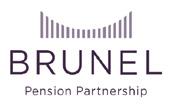
ii. LAPFF (Local Authorities Pension Fund Forum)
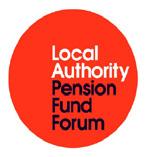
The Fund is a member of the LAPFF, to enable it to act with other local authorities on corporate governance issues. LAPFF’s mission is to protect the long-term investment interests of beneficiaries by promoting the highest standards of corporate governance and corporate responsibility amongst investee companies.
Details of their activities can be found on the following link: http://www.lapfforum.org/about-us
iii. TPI (Transition Pathway Initiative)

The Fund publicly supports TPI, which is a global, asset-owner led initiative which assesses companies’ preparedness for the transition to a low carbon economy. The TPI tool assesses progress against companies and sectors to measure the level of management quality and carbon performance, to aid in risk assessment.
More information can be found here: https://www.transitionpathwayinitiative.org/
iv. IIGCC (Institutional Investors Group on Climate Change)

The Fund is a member of the IIGCC. The Fund has made a public net zero commitment through the IIGCC’s Paris Aligned Investment Initiative.
More information can be found here: https://www.iigcc.org/
As part of its membership the Fund benefits from educational materials, webinars, and the net zero framework, which will help the Fund achieve the target of net zero by 2050.
v. Climate Action 100

The Fund is a signatory of Climate Action 100. This is an investor-led initiative to ensure the world’s largest corporate greenhouse gas emitters take necessary action on climate change. This initiative enables the Fund to support engagement activities which promote the target of net zero by More2050.information is available here: https://www.climateaction100.org/
vi. Just Transition
A "just transition" means not transitioning to a low carbon economy at any cost, but doing so whilst also ensuring that this is done in a socially responsible way, i.e. in a way which is fair to all. The Grantham Research Institute on Climate Change and the Environment at the London School of Economics and Political Science have put together a comprehensive guide as to what this means for investors, and what action can be taken. The Fund has signed a statement of support, and uses the guide to help embed this goal within the Fund’s policies, and help hold our investment managers to account.
More information is available at the following link: just-transition-global-project/https://www.lse.ac.uk/granthaminstitute/investing-in-a-
WILTSHIRE PENSION FUND RESPONSIBLE INVESTMENT POLICY 2022 17
RESOURCING
Work done on responsible investment issues is largely resourced by officer time. Officers have been set responsible investment and stewardship objectives as part of the annual goal setting process, and an assessment of progress against these objectives will form part of the annual appraisal performance review.
A huge amount of responsible investment work is carried out by the Brunel pool, which has a dedicated team of staff who are widely regarding as being market leading. This resource is a real benefit of pooling, as the Fund would be unable to carry out this level of work independently.
Clients engage with Brunel on responsible investment issues regularly – one of the ways this takes place is through the responsible investment sub-group, which Wiltshire officers regularly attend. This group learns about engagement case studies, helps to develop reporting, and sets the responsible investment agenda at the pool in line with client requirements.
Through the Brunel pool and a wider network of contacts, officers regularly share responsible investment knowledge, ideas, progress, updates etc. with other LGPS funds.
The Scheme Advisory Board has recently launched a website resource on responsible investment, which is being further developed over time to add relevant case studies. This is available via the following link: https://ri.lgpsboard.org/items

The Fund’s investment adviser, Mercer, have allocated a specialist responsible investment adviser to work with the Fund. This continuity of specialism will benefit the Fund as the approach is further developed.
The Fund has access to information through the various initiatives it has signed up to, including reading materials, relevant data, and access to training.

18 WILTSHIRE PENSION FUND RESPONSIBLE INVESTMENT POLICY 2022
KNOWLEDGE AND TRAINING

Training is available for Committee members on responsible investment topics, including but not limited to conferences, webinars, investment manager presentations, Brunel investor days, circulation of reading materials, and internal training days. Responsible investment topics are given high priority when setting the training plan for Committee members for the coming year. Local Pension Board members are also always invited to these training sessions. Officers ensure that Committee members receive adequate training before being asked to make any strategic decisions. Training is followed up via a feedback survey, to identify if there are any follow-on training requirements.
Training needs for officers are assessed as part of the work done to set the workplan for the team, and set goals and performance targets for individual team members. Officers have access to all the training opportunities open to Committee members, and additionally can build their responsible investment knowledge through regular meetings with investment managers, discussions with the Fund’s investment advisers, or through more formal training, for example the CFA ESG Certificate.
WILTSHIRE PENSION FUND RESPONSIBLE INVESTMENT POLICY 2021 19
REPORTING AND ACCOUNTABILITY
Reporting is important in order to measure and monitor progress against objectives, and for transparency and openness with stakeholders. The Fund’s current reporting is as follows:
INTERNAL REPORTING FREQUENCY WHERE TO FIND IT
Pension Fund Committee responsible investment progress reports
Local Pension Board responsible investment progress reports
Quarterly https://cms.wiltshire.gov.uk/ieListMeetings.aspx?CommitteeId=142
Bi-annual https://cms.wiltshire.gov.uk/ieListMeetings.aspx?CId=1280&Year=0
EXTERNAL REPORTING FREQUENCY WHERE TO FIND IT
Annual Report and one-page summary “Our Year in Review”
Task Force on Climate-Related Financial Disclosures (TCFD) Report
Voting records and Engagement reports
STRATEGIES, POLICIES AND PLANS
Investment Strategy Statement (ISS)
Annual https://www.wiltshirepensionfund.org.uk/Annual-report-and-accounts
Annual https://www.wiltshirepensionfund.org.uk/Climate
Quarterly https://www.wiltshirepensionfund.org.uk/Voting-records
FREQUENCY WHERE TO FIND IT
Reviewed at least once every 3 years, but in practice under regular review
https://www.wiltshirepensionfund.org.uk/investment-policies-and-strategies
Responsible Investment Policy Updated annually https://www.wiltshirepensionfund.org.uk/investment-policies-and-strategies
Responsible Investment Plan Annual https://www.wiltshirepensionfund.org.uk/investment-policies-and-strategies
Stewardship Report and Responsible Investment and Stewardship Highlights mini-magazine Annual https://wiltshirepensionfund.org.uk/Stewardship
Responsible Investment Continuous Improvement
Responsible Investment is a constantly evolving area, and accordingly the Committee approves an ambitious new Responsible Investment Plan each year, in order to ensure that the Fund continues to make progress towards being an example of best practice. The Responsible Investment Plan 2022/23 can be found on the Fund’s website (https://www.wiltshirepensionfund.org.uk/investmentpolicies-and-strategies). The Plan sets out the context and background, as well as a roadmap of actions for the coming year. The Committee monitor progress against the Plan on a quarterly basis.
20 WILTSHIRE PENSION FUND RESPONSIBLE INVESTMENT POLICY 2022
STEWARDSHIP
Stewardship is defined by the PRI (UN supported Principles for Responsible Investment) as


The use of influence by institutional investors to maximise overall long-term value including the value of common economic, social and environmental assets, on which returns and clients' and beneficiaries' interests depend
The Stewardship Code 2020 defines it as the responsible allocation, management and oversight of capital to create long-term value for clients and beneficiaries leading to sustainable benefits for the economy, the environment and society
The Fund was a signatory to the original Stewardship Code, which was introduced in 2010 by the Financial Reporting Council (FRC). The FRC has now published a revised 2020 Code, to which the Fund has achieved signatory status. The 2020 Code is ambitious and has a focus on outcomes, not just policy statements. The first reporting in line with the 2020 Code was published in April 2022, via the Stewardship Report 2022.
A mini-magazine, Responsible Investment and Stewardship Highlights 2021/2022 was published alongside the full report, to bring the Fund’s approach to life for stakeholders, with examples and case studies to put the policy into context.
In September 2022, the Fund was delighted to be awarded signatory status of the 2020 Code. This represents a positive milestone for the Fund. The Fund will continue to work to improve the approach towards stewardship. During the year to date, the Fund has shared several examples of stewardship and engagement activities via the news pages on the Fund's website, in order to promote transparency and to provide real life examples to bring this area to life for stakeholders.
WILTSHIRE PENSION FUND RESPONSIBLE INVESTMENT POLICY 2022 21
SCHEME MEMBERSHIP AND EMPLOYER ENGAGEMENT
The Fund considers that transparency on its actions, particularly with regard to responsible investment issues, is important, and engagement with the scheme employers and membership is a key part of this. The topic of investments is quite technical, and responsible investment issues can be nuanced, so it is important to educate members as well as asking for opinions.
Why might the Fund engage with employers and members?
• Employers – funding is achieved by a balance of employer (and employee) contributions, and investment returns. Therefore employers, as budget holders, will be interested in how the investments are managed, as this could have an impact on the contribution rates they need to pay.
• Members – members benefits are set in law and are not impacted by the investment returns. However, members may have personal beliefs and views on how the investments are managed. Therefore, keeping members informed and finding ways to represent their opinions is important.
There are a range of ways that members can be engaged with:
i. Informing
ii. Educating
The Fund will continue to hold regular webinars covering responsible investment issues for both employers and members. The Fund will use its website as a way to communicate information and keep members and employers informed. The Fund will continue to develop methods of accessible communication.
iii. Consulting
In order to incorporate the views of the employers, the Fund will consult with employers on amendments to the ISS. There are two employer representatives on the Committee, who are actively involved in promoting employer engagement. The Fund has established an employer focus groups, to discuss relevant strategic issues, including investment policies and strategies.
iv. Actively seeking views
SEEKINGCONSULTINGEDUCATINGACTIVELYVIEWS
INFORMING
The Fund seeks to keep members and the general public informed via highlights on responsible investment and a climate risk section within the Annual Report. The Fund publishes an annual Stewardship Report, and highlights from this (focussed on outcomes and case studies) are published via a mini-magazine to make the information more accessible to stakeholders. The Fund makes use of the news section of the website to share short posts, including responsible investment content. The Fund will continue to publish press releases to communicate major strategic decisions.
The Fund has used surveys to collect the views of employers and members, and has used the results of these surveys to develop the approach to member and employer engagement. Although the views of members and employers alone would not be used to drive the strategy, they would be considered by the Committee alongside other information as part of a full picture. The Fund’s investment strategy is set in the best financial interests of the Fund, but can also, where possible, reflect the wider goals and philosophy of the employer organisations and Fund membership.
22 WILTSHIRE PENSION FUND RESPONSIBLE INVESTMENT POLICY 2022
GLOSSARY
Active
AuthorityAdministering
Affordable housing
an active investment is one which aims to beat an index or deliver returns based on asset manager skill. Annual charges are higher and manager selection and monitoring more important than for passive, but potential returns may be higher.
means a body required to maintain a pension fund under the LGPS Regulations, usually this is a local authority. For the Wiltshire Pension Fund, this is Wiltshire Council.
in an investment context, the definition of affordable housing can vary. However, generally this would include housing that is affordable to those with a household income at or below the (local) median. In practice, investment may include residential property in supported, social, shared ownership, affordable private market rent, and mixed tenures. For the wider policy context, there is no agreed definition of affordable housing. Annex 2 to the National Planning Policy Framework (NPPF) is the most commonly referred to definition. This is used by local planning authorities when making provision within their areas to meet local demand/need for affordable housing.
Analytics for Climate Transition (ACT)
Annual MeetingGeneral
Baseline
Benchmark
Brunel PartnershipPension("Brunel")
Business Plan (Fund)
Climate change
Diversified
Employee
Employer
Environmental, Social and Governance (ESG)
is Mercer's proprietary solution to help investors construct climate resilient portfolios. Mercer’s framework and analytics draw on multiple data providers and metrics to assess portfolios across a spectrum of carbon risk, with portfolios ranked from low transition capacity (gray investments) to investments that are low carbon risk/zero carbon already, or are providing climate solutions (green investments). The majority of companies in investor portfolios fall somewhere in between the two sides.
at an AGM, the directors of a company present an annual report to shareholders on performance and strategy. Shareholders with voting rights can vote on current issues, for example appointments to the company's board of directors, executive compensation, dividend payments, and the selection of auditors.
this provides a starting point from which to project indicative pathways and plan to achieve net zero.
a benchmark is used to measure the performance of a fund, or asset manager against the investment objective. The FTSE 100 is a common benchmark for UK equities, for example.
one of eight national LGPS asset pools that bring together investments of ten partner funds, including Wiltshire.
sets out the aims and objectives of the Fund over the upcoming years and the outcomes to achieve for its stakeholders.
is the long-term change in average weather patterns that have come to define Earth’s local, regional and global climates. These changes have a broad range of observed effects that are synonymous with the term.
a strategy that blends a variety of investments, asset types and investment vehicles, within a portfolio. This limits exposure to single assets and mitigates risk.
in general, an employee is also a member of the Wiltshire Pension Fund. The LGPS has a very low opt out rate, nearly all employees are members of the scheme
in general, an employer is either scheduled or admitted to the Wiltshire Pension Fund so its employees are members of the scheme.
a broad range of factors which investors can assess to identify risks and opportunities.
WILTSHIRE PENSION FUND RESPONSIBLE INVESTMENT POLICY 2022 23
GLOSSARY (continued)
Extraordinary General Meeting
an EGM refers to any shareholder meeting called by a company other than its scheduled AGM.
Fast fashion inexpensive clothing produced rapidly by mass-market retailers in response to the latest trends.
Fiduciary duty the Committee’s responsibility to act in the best interest of the Fund’s beneficiaries.
Freedom of Information (FOI)
Global warming
Greenhouse Gas (GHG)
the Freedom of Information Act 2000 provides public access to information held by public authorities. It does this in two ways: public authorities are obliged to publish certain information about their activities; and members of the public are entitled to request information from public authorities.
is the long-term heating of Earth's surface observed since the pre-industrial period (between 1850 and 1900) due to human activities, primarily fossil fuel burning, which increases heattrapping greenhouse gas levels in Earth's atmosphere. This term is not interchangeable with the term "climate change."
The atmospheric gases responsible for causing global warming and climate change. The major GHGs are carbon dioxide (CO2), methane (CH4) and nitrous oxide (N20).
Impact investing
investing to generate a positive measurable environmental or social impact in addition to earning competitive market returns.
Investment manager
Investment Strategy Statement (ISS)
Local Authority
Local Pension Board
Low carbon economy
for the purpose of responsible investment and stewardship reporting in the context of the LGPS, "asset manager" is interchangeable with "investment manager" as defined in the LGPS (Management and Investment of Funds) Regulations 2016 (9) https://www.legislation.gov.uk/ uksi/2016/946/regulation/9/made
a key document of the Fund, which sets out the Fund’s investment strategy.
an administrative body in local government. A local authority may act as an administering authority for its own pension fund and those of other local authorities.
is responsible for assisting the administering authority in securing compliance with the LGPS regulations, overriding legislation and guidance from the Pensions Regulator.
is defined as the activities which generate products or services which themselves deliver low carbon outputs.
Member
Net Zero
Officers
Paris BenchmarkAligned
unless proceeded or followed by reference to the Committee or Local Pension Board, member refers to a member of the Wiltshire Pension Fund.
net zero refers to the balance between the amount of greenhouse gas produced and the amount removed from the atmosphere. Net zero is reached when the amount added is no more than the amount taken away.
internal Wiltshire staff that manage the investment arrangements of the Fund and support and assist the Committee with their role.
developed with Brunel, FTSE Russell’s Paris-aligned benchmark series aims to achieve a 50% reduction in carbon emissions over a 10-year period and integrate forward-looking metrics and governance protections from the transition pathway initiative (TPI).
24 WILTSHIRE PENSION FUND RESPONSIBLE INVESTMENT POLICY 2022
Passive
Pension “Committee”)CommitteeFund(the
Pool
InfrastructureRenewable
InvestmentResponsible
Scheme Advisory Board
a passive investment is one which tracks a market-weighted index. Passive management is most common in equity markets and often used by pension funds to build a diversified portfolio with a long-term investment horizon.
the body running the Wiltshire Pension Fund with delegated authority to exercise the functions of Wiltshire Council as administering authority under the Local Government Superannuation Acts and Regulations.
an investment term which refers to the grouping together of investment holdings. This method of investing offers significant economies of scale and is well suited to investors sharing the same investment objectives.
is a broad asset classification, which could include investment in energy, power, communications, water/waste/utilities, transport and social infrastructure, via either public or private vehicles.
a strategy and practice to incorporate environmental, social and governance (ESG) factors in investment decisions and active ownership (as defined by the Principles for Responsible Investment, an investor initiative in partnership with UNEP Finance Initiative and UN Global Compact).
the function of the LGPS Advisory Board (SAB) (E&W) is to provide advice to the Secretary of State on the desirability of making changes to the Scheme and provide advice to administering authorities and local pension boards in relation to the effective and efficient administration and management of the Scheme.
Scope 1 and 2
Segregated
Stewardship
Strategic AllocationAsset(SAA)
Sustainability
Task Force on Climaterelated DisclosuresFinancial(TCFD)
Transition (to low carbon economy)
Weighted Average Carbon Intensity (WACI)
are emissions that are owned or controlled by a company, whereas scope 3 emissions are a consequence of the activities of the company but occur from sources not owned or controlled by it.
an investment term which refers to the segregation of investment holdings in an individual account (as opposed to pooled with a larger group). This is quite uncommon as individual requirements related to risk and investment objectives would need to be significant enough to justify additional costs.
the responsible allocation, management and oversight of capital to create long-term value for clients and beneficiaries leading to sustainable benefits for the economy, the environment and society (as defined by the 2020 Stewardship Code).
the mix of different types of assets held in order to generate the required investment return for an appropriate amount of risk.
investing in a way that incorporates ESG criteria and active ownership, to generate superior riskadjusted returns.
reporting on climate change risk, set out under governance, strategy, risk management and carbon metrics.
the process of moving from using both high carbon energy and low carbon energy to just using low carbon energy.
a measure of a portfolio’s carbon intensity, also referred to as the carbon footprint. The WACI generally measures scope 1 and 2 emissions.
WILTSHIRE PENSION FUND RESPONSIBLE INVESTMENT POLICY 2022 25

